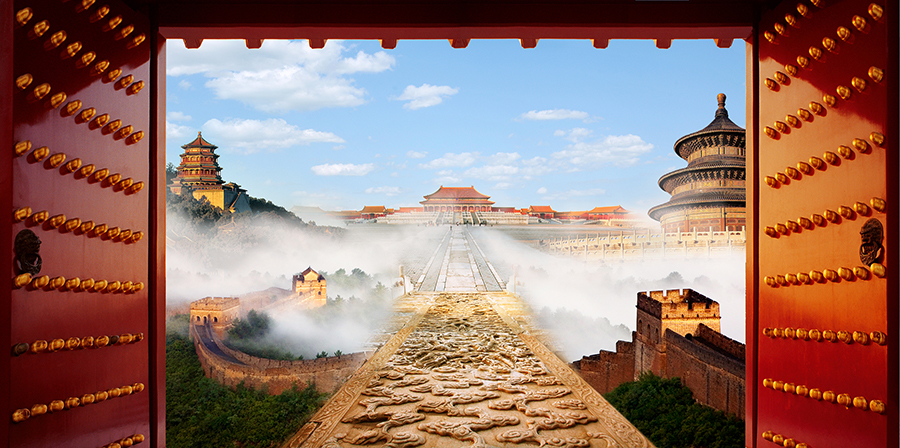(单词翻译:单击)
China has been a global superpower in almost every historical period.
中国几乎在每一个历史时期都是全球范围的超级强国。
The only exception was the century of humiliation (1850–1949), or during the imperialism era.
唯一的例外就是屈辱的一个世纪(1850–1949),或者叫帝国主义时代。
In Pre-Qin dynasties, China was ruled (nominally) by Shang and Zhou rulers. Their territories, despite being small compared to present-day China, was larger than its contemporary civilization, such as ancient Greece and ancient Egypt. The technology was at least equal to both civilizations. Almost every nomadic tribe in China proper was subjugated by Chinese states under the Zhou dynasty. The tribal people were sinicized, and became “Chinese.” During this age, Chinese culture flourished. Many ideological groups (Confucianism, Legalism, etc.) spawned in this era.
先秦时期,中国在名义上被商周统治者统治。他们的疆域虽然比今天的中国小,但也比当时其他的文明古国都大,比如古希腊和古埃及,技术也不低于这两种文明。几乎当时中国每个游牧部落都隶属于周朝时期的中国,游牧民族被同化,变成了“中国人”。这一时期中国文化繁荣起来,许多思想派别(儒家思想、法家思想等)都在这一时期蓬勃发展。
Chinese civilization in the Warring States period, notice that the entire territory of Chinese civilization increased because of the colonization of the outer areas by states, especially Qin and Chu. Qin defeated as many as 25 tribes, and annexed the areas once controlled by nomads.
战国时期的中华文明,值得注意的是中华文明整体疆域的扩张是由于国家对外的吞并,尤其是秦国和楚国。秦国打败了多达25个部落,吞并了曾被游牧部落控制的地区。

In Qin dynasty and Han dynasty, China became a unified, centralized empire (completely in the reign of Emperor Wu of Han). China became the end destination of the silk road. Trade and economy were flourished. Unlike Rome that was defeated by the nomads, Han Dynasty managed to defeat the mighty Xiongnu confederacy at its homeland, and repelled these nomads from the Chinese border. Furthermore, the eastern part of Central Asia, and Korea was conquered by Han Dynasty as well.
中国在秦朝和汉代变成统一的中央集权的帝国(完全受汉武帝统治)。中国成为了丝绸之路的终端,贸易和经济繁荣发展。不像被游牧民族打败的罗马,汉朝成功地在匈奴地区击败了强大的匈奴联军,在中国边境击退了这些游牧民族。此外,中亚的东部地区和朝鲜也被汉朝占领。
Han Dynasty later defeated the Yue people in Fujian, and sinicized them.
汉朝后来打败了福建的粤族,并将其同化。
China (In red) had a large economy since antiquity. Notice that the share of world GDP decreased sharply during the century of humiliation (1849–1949), which paralleled to the imperialist era. The only country that had a larger share of world GDP in antiquity than China was India. However, since AD1, ancient India was not united into a single state as China (Han Dynasty). The closest ones were the Gupta Empire (320CE–550CE).
中国(红色区域)从古代起就很富庶。值得注意的是中国在那屈辱的一个世纪(1849–1949)也叫帝国主义时代中在世界GDP中所占份额骤降,唯一在古代比中国所占全球GDP份额大的国家是印度。然而,从公元1年起,古印度不像中国(汉朝)一样是统一国家,距离现在最近的是笈多王朝(公元320年—550年)。


